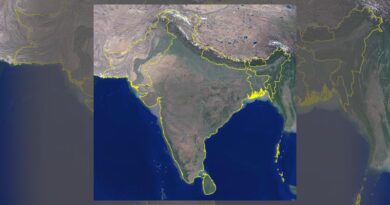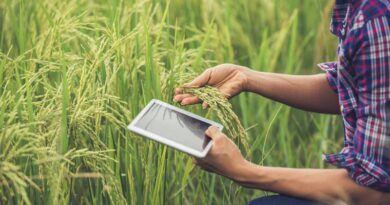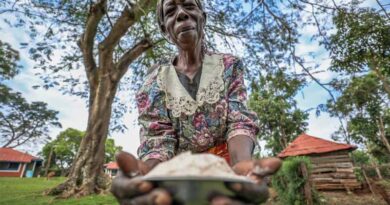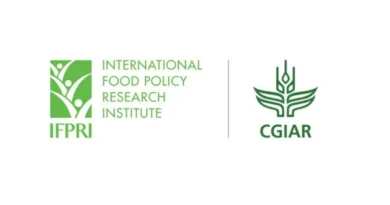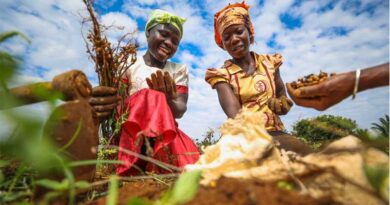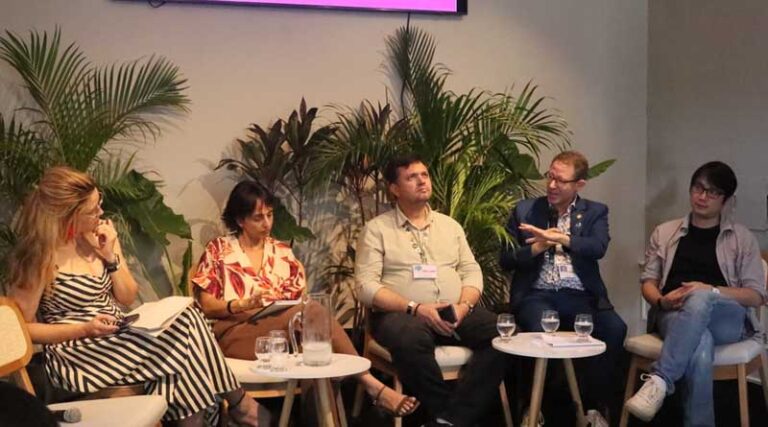
IRRI at COP30 Champions Low-Carbon Rice Farming, Carbon Finance Opportunities In The Global South
27 November 2025, Brazil: The International Rice Research Institute (IRRI) joined global leaders and experts to advance important dialogues on climate-resilient and low-emission rice systems at the 30th United Nations Climate Change Conference (COP30) in Belem, Brazil.
Rice both drives and bears the impact of climate change. Accounting for around 10% of human-caused methane emissions globally, a single hectare of rice paddy emits more methane on average than that of a US household.
At the same time, IRRI’s research shows that every 1°C increase in temperature can reduce rice grain yields by up to 10%. As a staple crop that feeds billions, rice faces a dual challenge of sustaining production to ensure food security while reducing its carbon footprint to meet the world’s climate goals.
Representing IRRI, Dr. Bjoern Ole Sander, Senior Scientist on Climate Change and Country Representative for Thailand, shared his expertise in multiple high-level sessions focused on reducing methane emissions and promoting sustainable agricultural transformation across the Global South.
Rice-Methane in Southeast Asia
In the session, “Rice & Methane in Southeast Asia: Towards Scalable Mitigation and South-South Exchange” Dr. Sander joined government leaders and experts from GIZ (Deutsche Gesellschaft für Internationale Zusammenarbeit), the Royal Government of Cambodia, and the Japanese Ministry of Agriculture, Fisheries and Forestry (MAFF) to discuss practical strategies for reducing methane emissions from rice cultivation.
Drawing on IRRI’s ongoing work in Thailand and Cambodia, Dr. Sander highlighted the need for better monitoring of GHG emissions from rice as prerequisite for effective mitigation, emphasizing the importance of regional cooperation for harmonized approaches and comparable data.
By using modern technology for rice emission monitoring to create reliable data, we can create the foundation for sustainable and resilient rice systems.” Dr. Sander said. “Effective south-south exchange is key here: by sharing lessons, tools, and evidence between countries, we can accelerate progress and help countries meet their climate goals,” he added.
Reducing Super Pollutants in Rice
Dr. Sander also shared his technical expertise on “Emerging Technical Measures to Reduce Super Pollutant Emissions from Rice Cultivation,” organized by the Environmental Defense Fund and the Climate and Clean Air Coalition (CCAC) at the Super Pollutant Pavilion.
The discussion highlighted technical and financial approaches to cut methane and other short-lived climate pollutants while boosting productivity, strengthening resilience, and supporting livelihoods. This includes identifying opportunities for climate finance, partnerships, and technology transfer to scale up innovations and offering policy recommendations to guide NDCs, methane roadmaps, and sectoral mitigation strategies.
Nature-based solutions for food security
Dr. Sander also represented both CGIAR and IRRI in the panel discussion, “Innovating for the Future of Food Security” under the event “Forests, Agriculture, and Green Economy in the Global South” led by the Asian Development Bank Institute (ADBI) and Instituto de Pesquisa Ambiental da Amazônia (IPAM). His talk focused on nature-based solutions for food security, particularly on the successes and challenges for scaling mitigation solutions among farmers.
“True transformation in rice farming begins in the fields, with farmers. Effective partnerships between innovators, policy, development partners and farmer-facing organizations are key to success. CGIAR can be central by translating latest science into usable tools on the ground.”
Integrating rice cultivation to global carbon markets
Dr. Sander also addressed opportunities in carbon finance, emphasizing the value of robust and reliable monitoring, reporting, and verification (MRV) systems.
“Only if emissions reductions are accurately measured and verified and carbon projects are built on science-anchored methodologies, carbon markets in agriculture can develop into a sustainable mechanism for low-emission development ,” he emphasized at the talk, “High Potential, High Complexity: Low‑emission Rice Cultivation for Carbon Markets,” organized by GIZ and the Carbon Market Mechanisms Working Group (CMM‑WG) and moderated by Perspective Climate Research.
Carbon markets and the Paris Agreement’s Article 6 framework, which enable countries to cooperate via market and non‑market approaches, offer new avenues to finance low‑emission rice practices. However, capturing and crediting methane reductions, even with proven technologies such as AWD, remain technically demanding.
Dr. Sander shared on-ground experiences from Southeast Asia on how MRV tools can be leveraged to deliver high mitigation outcomes. A crucial point is fair benefits sharing between project implementors and farmers.
Catalyzing climate resilience in the Global South
IRRI’s participation at COP30 reaffirms its continued commitment to helping countries in the Global South transition to low-emission, climate-resilient rice systems.
Aligned with IRRI’s newly launched strategy, the institute is working closely with governments and private partners to advance and promote rice innovations, expand climate finance opportunities, and strengthen farmers’ resilience to climate change and extreme weather events, driving reductions in methane emission while safeguarding food security.
Also Read: CNH Industrial Finance Europe S.A. 1.875% Notes Due 2026 Notice Of Redemption
📢 If You’re in Agriculture, Make Sure the Right People Hear Your Story.
From product launches to strategic announcements, Global Agriculture offers unmatched visibility across international agri-business markets. Connect with us at pr@global-agriculture.com to explore editorial and advertising opportunities that reach the right audience, worldwide.


